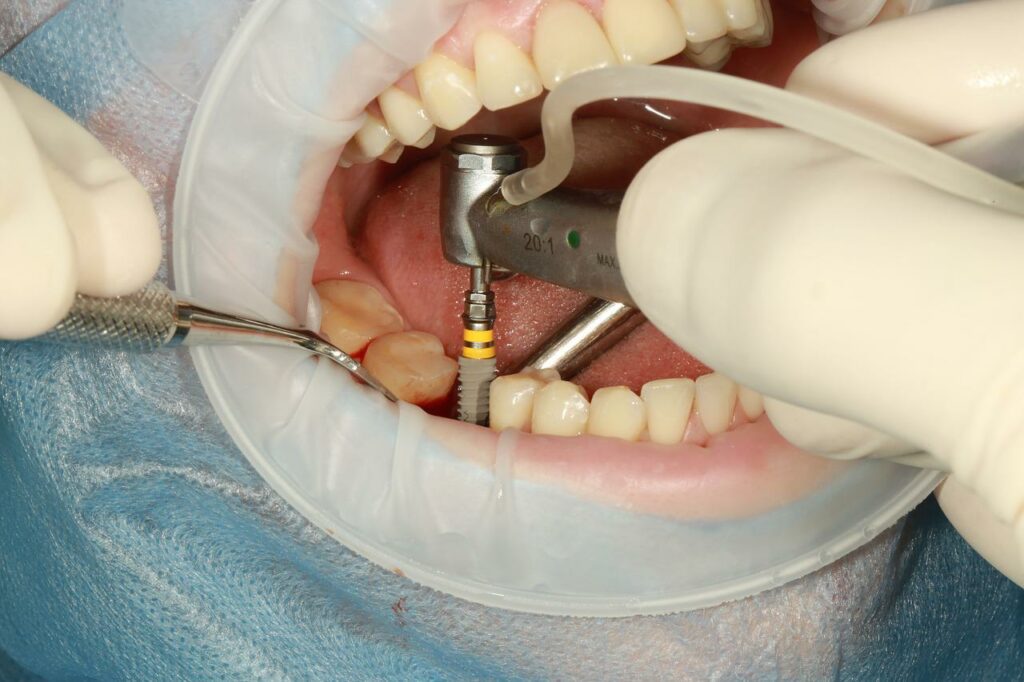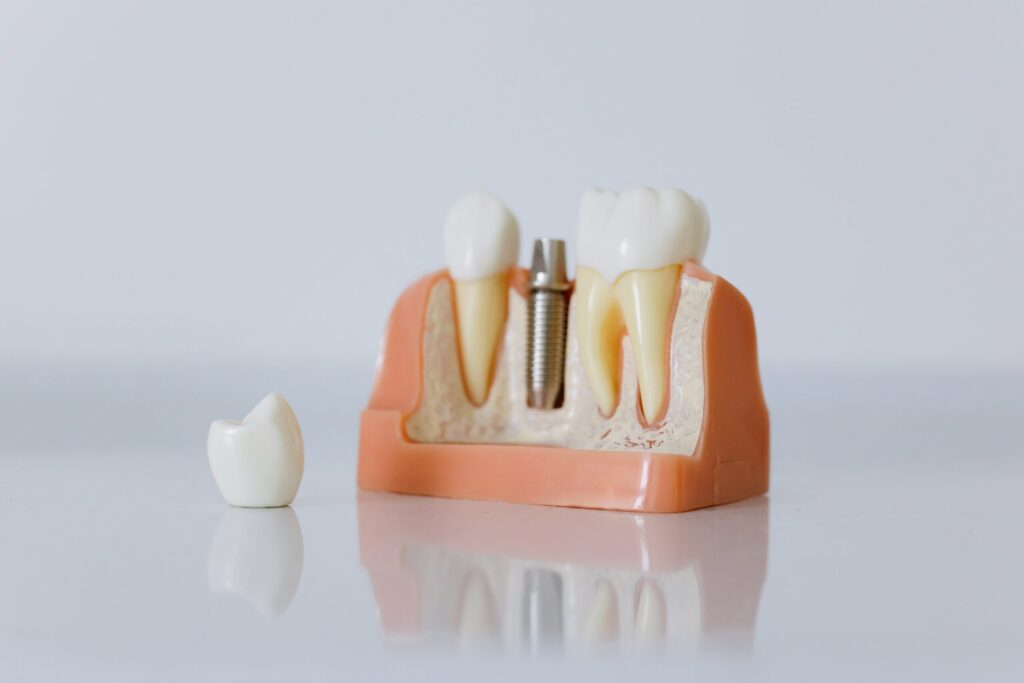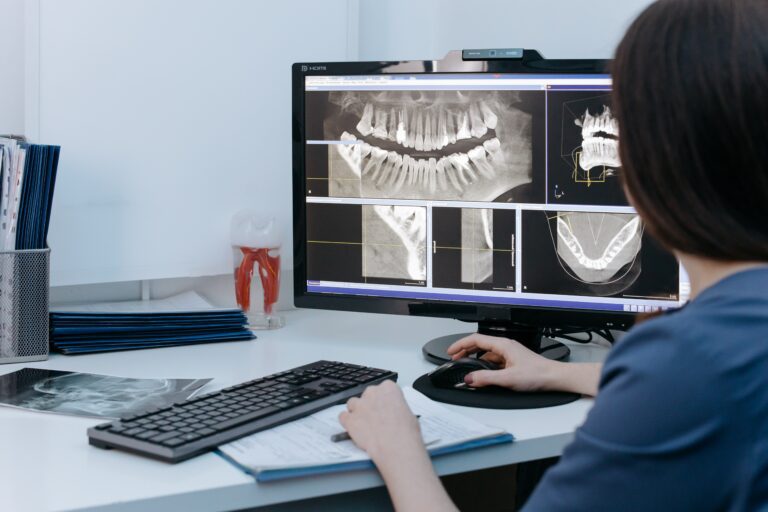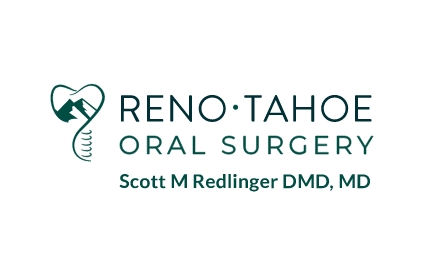Post-surgery, no matter how large or small the procedure was, is a vital step to recovering on time. Treating a dental implant is like treating regular teeth. It can take up to six months to fully heal, assuming that you treat them right from the start.
Our patients tend to ask us this question: do implants need extra care?
Taking care of your implants is not difficult and it really comes down to how much you take care of your mouth and gums. Immediately after the implant is placed, you probably won’t feel a lot of pain or discomfort thanks to numbing and sedation. Once it wears off, we highly recommend taking any prescribed pain medication or over-the-counter options like ibuprofen, acetaminophen or naproxen.

Post-surgery, no matter how large or small the procedure was, is a vital step to recovering on time. Treating a dental implant is like treating regular teeth. It can take up to six months to fully heal, assuming that you treat them right from the start.
Our patients tend to ask us this question: do implants need extra care?
Taking care of your implants is not difficult and it really comes down to how much you take care of your mouth and gums. Immediately after the implant is placed, you probably won’t feel a lot of pain or discomfort thanks to numbing and sedation. Once it wears off, we highly recommend taking any prescribed pain medication or over-the-counter options like ibuprofen, acetaminophen or naproxen.
Other important tips to keep in mind during the oral surgery recovery phase include:
Temporarily Changing Your Diet
During the first five to seven days after surgery, stick to soft foods exclusively. Don’t eat spicy foods or drink hot liquids either, or even drink alcohol in the first few days.
The easiest soft foods to eat include yogurt, pudding, ice cream or milkshakes, and cooled down soups or purees. Some swelling is normal after oral surgery, but it increases two or three days after the procedure – contact your oral surgeon.
Dental implants don’t give you the ability to fully chew immediately, so there’s a lot of foods you need to avoid to stay healthy. This applies to not only hard and solid foods but also foods that are a challenge to chew, such as potato chips, raw carrots, and popcorn.

Keeping Up on Regular Brushing
Dental implants are different from real teeth because they aren’t made of enamel or even the thin outer covering on a tooth. Implants can’t develop cavities, but they’re still susceptible to other dental conditions – including implant failure. Experiencing inflamed or swollen gums, chewing problems, pain, or discomfort can indicate that you’re practicing poor oral hygiene habits.
Brushing should be accompanied with flossing, since dental floss can reach those challenging places in your gum line. We recommend using floss threaders for your dental implant area. Just finish the cleaning routine with mouth rinse to strengthen the enamel of your natural teeth, and you’re on your way to feeling refreshed!
Quit Smoking for Your Overall Health
Save your teeth and put down the cigarette – it’s been proven that spending time with non-smokers, in addition to exercising, can reduce cravings and potential withdrawal symptoms.
Make sure to quit any bad habits that would lead to additional oral issues or impede on the healing process. After all, avoiding cigarettes will help with your general health, even if it’s not easy to quit smoking. In the long-term, it’s worth it because a buildup of tobacco on your mouth and teeth will worsen gum disease and periodontitis, leading to potentially higher dental implant prices and procedures.
See Your Oral Surgeon if Pain Persists
Tooth extractions carry a small risk of complications like post-surgical infections or dry sockets, even if the latter does not occur from implant surgeries alone.
After a week or two, your implant should completely heal. It can have some tenderness but not any noticeable bleeding or pain. Other possible complications include an improperly placed implant which can cause infections.
Our team at Reno Tahoe Oral Surgery Dental Implant Center stresses that anytime you develop dental pain after surgery, it’s important to follow up with your dentist and oral surgeon to determine the cause. All in all, a tooth extraction is the best way to prevent infections and get back on track to better health.

How Reno-Tahoe Oral Surgery and Dental Implant Center Can Help
It’s never a fun feeling to hear that you need a tooth pulled, but sometimes it’s best in order to prevent infections or worsening symptoms and get you back on track. Another stressor for many is the cost of visiting a healthcare provider.
Dental implant costs can vary from patient to patient. We make every effort to provide you with the finest care and convenient options after your tooth extraction and recovery. Feel free to call the offices here at Reno Tahoe Oral Surgery and Dental Implant Center to ask about procedures, billing, or other questions about Reno implant prices.








